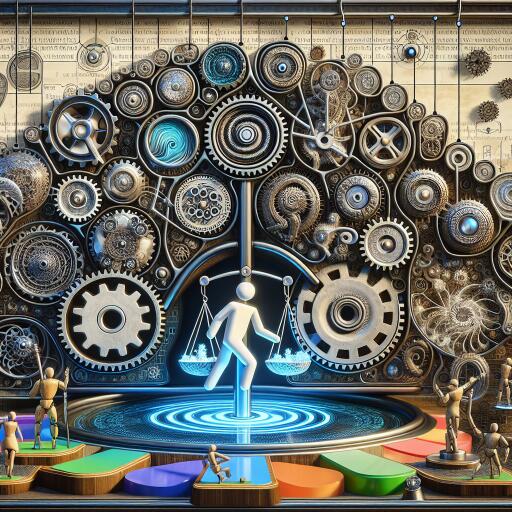Revolutionizing Language Model Personalization through Gamification
The realm of Natural Language Processing (NLP) has grown exponentially, with language models sitting at the core of many technologies we use daily—from virtual assistants to automated writing aids. However, one persistent challenge has been making these models more personalized to better reflect the nuances of individual users’ language. Traditionally, efforts to personalize language models have been focused on fine-tuning the algorithms with data created by the users themselves, such as social media posts. Yet, gathering this data effectively and ethically has proven to be a significant hurdle. In a groundbreaking approach, researchers are now exploring an alternative route towards achieving a truly personalized language model without the need to adjust the model’s parameters.
At the heart of this innovation is an understanding that each user has a unique “mental model” of language—a distinctive way of interpreting and categorizing concepts based on their individual experiences and knowledge. The challenge, then, is to capture this personal language understanding without burdening the user with tedious and repetitive tasks that could lead to disengagement.
To tackle this issue, a new paper proposes a creative solution: why not make the process of articulating one’s linguistic preferences both fun and engaging through gamification? The authors introduce an inventive approach that integrates elements of gamification into visual analytics (VA) to help users articulate and share their language understanding within a variety of contexts.
Introducing Concept Universe: A Gamified Approach to Language Personalization
The centerpiece of this approach is the Concept Universe, a gameful visual analytics playground designed to capture the nuances of users’ personal conceptual understandings of language. Concept Universe invites users into a four-phase game where they construct personalized concept descriptions by selecting keywords that they believe best represent a given concept.
In this engaging environment, players aren’t just passively inputting data—they’re embroiled in a dynamic interaction with the system, which provides constant feedback through visual, verbal, and auditory cues. This interactive feedback loop is crucial, keeping participants engaged and encouraging them to provide more nuanced and specific input as they compete against a virtual opponent.
The gamified nature of Concept Universe addresses two major challenges in personalized language model selection. Firstly, it significantly reduces user disengagement by transforming what could have been a monotonous task into an enjoyable game. Secondly, it facilitates a richer expression of users’ language understanding by placing them in varied contextual environments, thus capturing a more comprehensive picture of their mental models of language.
A Promising Evaluation
The effectiveness of the Concept Universe was tested through a user study involving six participants. The findings were promising—participants were not only fully engaged throughout the process but they also provided highly specific and varied input when prompted by the competitive elements of the game. Such detailed input is crucial for building accurate profiles of individual language understandments, which, in turn, can be used to suggest language models that better align with the user’s own way of thinking and communicating.
The implications of this research are far-reaching for the future of NLP and personalized computing. By leveraging gamified elicitation, it becomes possible to build language models that truly understand and adapt to the subtleties of individual user preferences without the need for labor-intensive data collection processes. This not only enhances user experience but also opens new frontiers in personalized digital interactions.
Looking Forward
The Concept Universe marks a significant step forward in making NLP technologies more adaptable and personal. It’s a brilliant example of how incorporating elements of play and competition can transform the task of data collection from a chore into a captivating experience. As this research progresses, it could pave the way for more user-friendly and customized digital products and services, ultimately making our interactions with technology more natural, intuitive, and meaningful.
Indeed, as we continue to explore the potential of gamified systems in various applications, it’s clear that the future of technology lies not just in the sophistication of algorithms but in how well they can resonate with, and adapt to, the human experience. The Concept Universe is a testament to this vision, pointing us towards a future where technology feels less like a tool and more like a companion.










